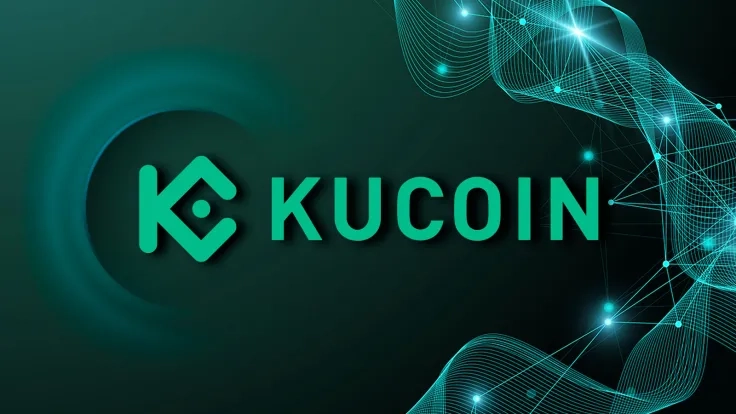Thailand KuCoin Tokenized Bond Launch: A Historic First
The Thailand KuCoin tokenized bond launch is reshaping the country’s financial landscape. By selecting KuCoin as the lead exchange for its groundbreaking G-Token initiative, Thailand has become one of the first nations to bring blockchain technology into the core of sovereign debt issuance.
The move places Thailand at the forefront of Asia’s digital finance revolution, blending public policy with decentralized technology while opening access to government bonds for everyday citizens.
KuCoin’s Role in Thailand’s G-Token Initiative
In an August 27 announcement, Thailand’s Public Debt Management Office (PDMO) confirmed that KuCoin Thailand will oversee subscriptions, redemptions, and secondary trading of G-Token, the country’s new tokenized government bond.
The exchange is working alongside partners including XSpring Digital, Krungthai XSpring, and SIX Network to support the issuance and provide advisory services to the Ministry of Finance. This consortium underscores the country’s commitment to blending regulated finance with blockchain innovation.
KuCoin CEO Johnny Lyu described the project as a milestone for sovereign finance, noting that blockchain offers transparency, speed, and accessibility that traditional bond markets lack.
How Thailand’s Tokenized Bond Works
The Thailand KuCoin tokenized bond launch introduces G-Token, a blockchain-based bond issued under the Public Debt Management Act. Key features include:
- First issuance: 5 billion baht (≈ $150 million).
- State-backed security: Principal and interest fully guaranteed by the Thai government.
- Low entry point: Minimum investment of just 100 baht ($3), compared with higher thresholds for traditional bonds.
- Retail focus: Accessible directly through licensed exchanges like KuCoin Thailand.
Unlike similar initiatives in Hong Kong and Singapore, which focused on institutional investors, Thailand’s program directly targets retail participation—making it one of the world’s first truly public-facing sovereign digital bond programs.
Why Thailand Chose Tokenization
The G-Token program is more than a fundraising tool—it is a strategic step toward modernizing public finance. By moving bonds onto blockchain rails, Thailand aims to:
- Improve transparency in debt issuance and settlement.
- Reduce inefficiencies in secondary bond markets.
- Democratize access to government securities.
Analysts suggest that tokenization could lower distribution costs while improving trust through immutable record-keeping. A World Economic Forum report previously highlighted tokenization as a major disruptor in sovereign finance.
Thailand’s Growing Crypto Ambitions
The Thailand KuCoin tokenized bond launch is part of a broader strategy to make the country a digital asset hub. Recent government moves include:
- Five-year capital gains tax exemption on crypto transactions.
- Launch of TouristDigiPay, a system allowing foreign visitors to exchange crypto into Thai baht via regulated payment platforms.
- Expansion of licensed exchanges, with KuCoin Thailand joining eight other SEC-approved platforms.
Thailand’s regulatory model has been praised for balancing investor protection with innovation. The Securities and Exchange Commission continues to monitor compliance while encouraging projects that strengthen the nation’s financial infrastructure.
For comparison, Singapore’s MAS has piloted tokenized bonds under Project Guardian, but largely at an institutional scale. Thailand’s retail-first approach signals a different, more inclusive strategy.
What This Means for Investors
The Thailand KuCoin tokenized bond launch is a test case for whether blockchain can integrate smoothly with public debt markets. If successful, the initiative could:
- Increase participation in sovereign bonds by retail investors.
- Set a precedent for other emerging markets.
- Position Thailand as a regional leader in blockchain-based finance.
Still, questions remain about scalability, liquidity on secondary markets, and how future issuances will be regulated once global exchanges like KuCoin expand listings.
FAQs: Thailand KuCoin Tokenized Bond Launch
What is the Thailand KuCoin tokenized bond launch?
It is Thailand’s first blockchain-based government bond program, with KuCoin as the lead exchange managing subscriptions, redemptions, and trading.
How much is the first G-Token issuance worth?
The Ministry of Finance confirmed an issuance of 5 billion baht (around $150 million), fully backed by the state.
Why is Thailand using blockchain for bonds?
The government wants to increase transparency, reduce inefficiencies, and expand retail access to sovereign debt through tokenization.
Who can buy G-Token bonds?
Any retail investor with an account on a licensed Thai exchange like KuCoin Thailand can invest, with a minimum entry point of just 100 baht ($3).
How does this compare to other countries’ initiatives?
Unlike Hong Kong and Singapore, which have focused on institutional pilots, Thailand’s program is designed for mass adoption by retail investors.
Conclusion: A Blueprint for Sovereign Finance
The Thailand KuCoin tokenized bond launch demonstrates how blockchain can move from pilot projects into core financial infrastructure. By opening sovereign debt to retail investors at unprecedented levels, Thailand is not only modernizing its public finance system but also setting an example for how tokenization can work at scale.
If successful, the initiative could inspire other governments to follow suit—transforming global debt markets and accelerating blockchain’s integration into traditional finance.

